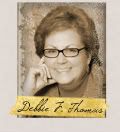
The weekend before Thanksgiving may be one of the worst times to hold a garage sale, but that's what we're doing on Saturday. We spent the last weekend digging and sorting and piling stuff into boxes. It's amazing the things we kept for years 'just because.' I emptied a five shelf unit that was piled with books two rows deep and plugged in all catty-whompas to make them fit. Now there are three boxes of great books that will hopefully get snatched up and treasured.
Of course, I kept several shelves of favorites which contain a mixture of both CBA (Christian) and ABA (mainstream) trade paperbacks. In light of our great discussions this week, I considered why I chose these particular ABA books and whether they demonstrated elements of hopefulness and transformation, which the CBA books did naturally.
Here is a selection of the ABA books I kept:
Peace Like a River, Shadow of the Wind, A Tree Grows in Brooklyn, To Kill a Mockingbird, Time Traveler's Wife, The Heart is a Lonely Hunter, Seabiscuit, Snow Falling on Cedars, Gilead, Pride and Prejudice, Water for Elephants, Jewel, The Miracles of Santo Fico, The Picture of Dorian Grey, Cold Sassy Tree
In these books I found characters who persevered, who revealed characteristics of God, who gave sacrificially, who gained new perspectives, who developed tolerance for others, who believed in a dream, whose faith was restored, who kept their word when it hurt, who didn't back down from a righteous fight, who protected what was good, who found the best in others, who never stopped loving.
Did I love each and every one of the characters? No, but they either redeemed themselves in some way or got their comeuppance. No unsatisfying, ambiguous endings here. In contrast, there are many books that I've begun and put down again. While I believe we should give a book a chance once we've started reading, we need to fine tune our discernment. I'm not referring to violence, language or sexuality, I mean when the book impacts your outlook on life in a negative way, it's time to listen to that inner voice saying 'enough!' Step away from the book.
BTW, right now I'm just getting into Marilyn Robinson's Home which takes place in the same town as Gilead during the same time period. I'm just now acquainted with the elderly pastor, his spinster daughter and her blacksheep brother. Their relationships are complicated, and I have a good feeling that they will come to an understanding and find closure in the end. They are the kind of folks I enjoy acquainting myself with. And one of them is vaguely familiar...
We know that CBA books include elements of hopefulness and transformation, but what ABA book has made an impact on you in this way? We'd love to hear!




















